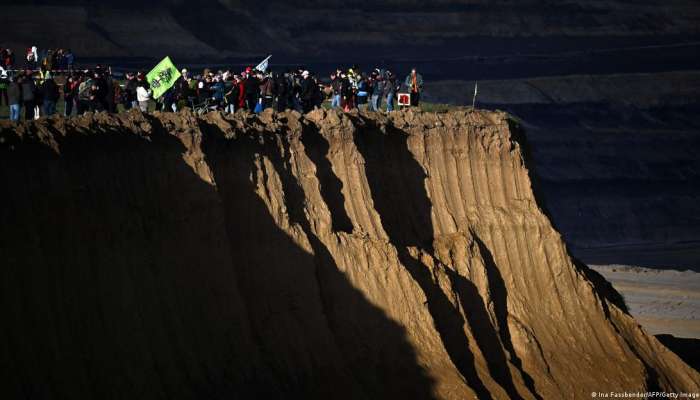
Brussels: Denmark joins a spate of EU nations including Germany, Spain, France and the Netherlands who are exiting the Energy Charter Treaty (ECT), an investment pact weaponised by big emitters to sue governments — most recently for phasing out fossil fuels.
With the European Commission having stated on February 7 its intention to coordinate a withdrawal of the entire bloc from the archaic pact — ratified in 1994 to protect energy investments in post-Soviet states — more countries are expected to join the eight EU members now in revolt.
EU countries are the target of 90% of ECT disputes. This litigation threat has hamstrung climate policy to the point where the EU can "wave bye-bye to carbon neutrality targets," claimed Yamina Saheb, a climate expert and former ECT employee.
When the Netherlands, for example, legislated a 2030 coal-fired power phase-out in an effort to reduce carbon emissions, German energy giants Uniper and RWE sued the government under the treaty.
In the closed-door arbitration court where ECT disputes are settled, RWE demanded €1.4 billion ($1.55 billion) compensation from the Dutch government — despite RWE susequently agreeing to its own 2030 coal phase-out in exchange for the right to mine lignite under Lützerath in western Germany.
That case is ongoing, though Uniper withdrew its claim as part of a bailout agreement with the German government.
Failed treaty modernisation sparks mass exit
The recent defections from the treaty are a sudden about face from June 2022 when the European Commission agreed on a series of modernisation measures to better align the ECT with climate goals.
But with one reform clause protecting existing fossil fuel investments for the next 10 years, France, Spain, Germany and the Netherlands decided modernisation didn't go far enough. Announcing their intention to leave the treaty, they were also able to block a scheduled November vote on the reform measures in the European Council.
"Despite many of the modernisations that are now in the negotiation outcome, we do not see how the ECT has been sufficiently aligned with the Paris Agreement," said Dutch climate and energy minister Rob Jetten when confirming the Netherlands' ECT exit last October.
The next month, the European Parliament passed a resolution calling for a coordinated EU withdrawal from the treaty — aligning with the aims of campaigners who have lobbied for years for an exodus. The resolution passed with a significant 100 vote majority and inspired the European Commission to follow suit in February.
While the ECT secretariat wanted to push on with another modernisation vote in April 2023, the Commission has not scheduled a meeting and is instead negotiating a coordinated withdrawal, noted Paul de Clerck, a Brussel-based campaigner for Friends of the Earth Europe.
Some EU countries like Cyprus, Malta, Finland and several Eastern European countries still support treaty reform, in part because they were "taken by surprise" by the Commission's sudden U-turn, de Clerck explained.
Will the 20-year sunset clause continue to stifle climate ambition?
The ECT's chill effect on climate ambition is strengthened by a zombie or sunset clause whereby states can be sued for another 20 years following their withdrawal from the treaty.
This loophole was exploited by UK oil company Rockhopper in 2017 when it sued the Italian government — after it became the first state to exit the ECT — for banning oil drilling on the Adriatic coast. Most of the €225 million ($224.4 million) claim, which succeeded in August 2022, was for projected future earnings — another contentious ECT clause.
Nonetheless, de Clerck contends that, in addition to Denmark, several more EU countries including Austria, Ireland and Portugal are close to announcing a withdrawal. Such a "second wave" of exits could spark a domino effect, he added.
Most political parties in Portugal now consider a withdrawal "inevitable," reported Portuguese trade NGO, Plataforma TROCA, on April 8. This would be significant, as Portugal is the ECT depository country that manages the pact, noted Lukas Schaugg, law analyst with the International Institute for Sustainable Development (IISD), a Canada-based think tank.
"Denmark's announcement is yet another sign of the growing momentum for a coordinated withdrawal from the ECT," he said.
"Such a step will free up the policy space required for an ambitious energy transition and an investment policy in line with the times," Schaugg added.
The Denmark exit, the first of 2023, was widely praised by campaigners.
"In the midst of climate breakdown, we can no longer let big polluters sue governments for billions over their climate policies, from taxpayer money, which is what the ECT allows," said Audrey Changoe, trade campaigner at Friends of the Earth Europe.
"Denmark's decision to exit this ecocide treaty is definitely the right one, and we expect more and more European countries will follow suit."